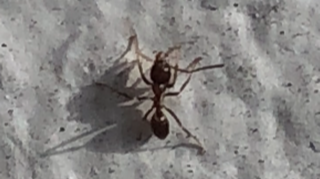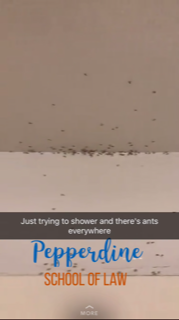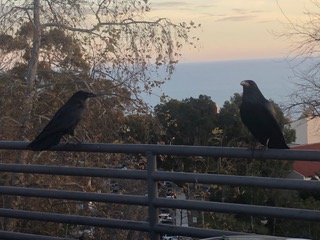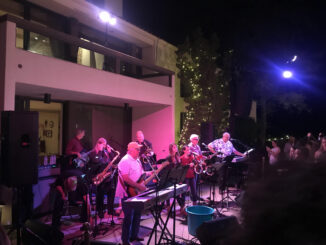
Location, location, location.
Pepperdine’s mountainside campus means great views but it also means constant critters.
Ants are the most common pests on campus but students also regularly experience deer, snakes, mice, rabbits, birds and raccoons. Pepperdine’s staff works to promote prevention efforts and sort out pests with as little harm to the animals as possible, given that the campus is built into their natural environment.
“Anyone who builds in a location like Pepperdine can expect ‘visitors,’” said Anthony Bevilacqua, a park ranger for the Santa Monica Mountains National Recreation Area.
Students believe pests are inconvenient and unclean, and most students have had an encounter with either pests or area wildlife.
Student complaints
A Pepp Post poll of 55 students found that while the problem seems mostly seasonal, the impact and severity of the various pests can be very bad. Roughly 62 percent of those surveyed encountered the pests in their or someone else’s dorm rooms.
The poll found that students were split on they viewed Pepperdine’s response to the pests. About 39 percent said Pepperdine’s response to the pests was good, while 37 percent found it to be poor.
About 66 percent believe that the biggest concern of the pest problem is the lack of cleanliness that the pests bring. Some also worry about the potential for disease.
About 43 percent of students felt very inconvenienced, selecting four or five on a five-point scale.
Overall, students think the seasonal pest problem is poorly controlled and Pepperdine staff can do better.

Ants, ants everywhere
There have been many calls to Facilities Services of ants being in rooms and houses.
Most of these calls came in the beginning of the year with the hot weather.
Sara Head, a first-year biology major, has had two extreme instances of ants in her Pauley Hall dorm.
“It was a nightmare,” Head said.
Head’s food cupboard was covered with ants. Head traced the cause back to some snack foods that were left open.
Head and her roommate recognized that the infestation was a big deal and began spraying the cabinet down with chemicals to get rid of the ants.
“We took it upon ourselves (to take care of the pests),” Head said, “but my roommate told my RA and my RA contacted someone higher up.”
Head and her housemates have also experienced minor pest problems with other bugs in their dorms.
Other wildlife
Pepperdine students all have experienced some form of wildlife due to the location.
Derek Pinto, a first-year sports medicine major residing in Joseph Pengilly Hall, was walking out of Rho parking lot going toward the stairs. Just as he was about to place his hand on the railing, he looked up to see raccoons on the trash can directly next to him.
“I kinda jumped,” Pinto said, “I told my friend to not scream but we were going to walk to the left and of course they did not listen, they asked why and looked up immediately, saw the raccoon and screamed.”
After the scream, not only did the one raccoon scurry out of the trash but four more hopped out along with it.
To make matters worse, Pinto looked up to see raccoons all along the branches of the trees.

Inconvenience
Ecology Professor Javier Monzón has an ant problem like everyone else. The pests aren’t such a big deal, Monzón said.
“From an ecological standpoint, we are built in a hill and there are still parts of campus that are semi-wild,” Monzón said.
Most pests on campus are just a nuisance more than an actual problem, Monzón said. Rodents can carry disease such as the bubonic plague, rabies, as well as many other diseases.
Though not ‘dangerous’ per say, pests can take up lots of time and energy to deal with.
“It’s kind of our own fault, people leave the dirty dishes in the sink and they are drawn to that,” Alyssa Riley, first-year sports medicine major, said.
Riley had to throw away food and expend money on ant spray to rid her room of the ants.
“You end up throwing out so much food and buying so much spray and stuff that it costs a lot in the end,” Riley said.
Bevilacqua wants to remind people that they are not alone in finding pests annoying.
“It is healthy to remember that this happens to everyone,” Bevilacqua said.
Pest control
Facilities Services’ main concern is maintaining the clean conditions of Pepperdine.
Facilities is under a large time crunch during the warmer weather of August through October to take care of all the calls that come in, support services manager James Lockhart and customer service specialist Nancy Carnahan said.
The biggest thing that students can do to avoid future problems is to try and maintain a clean space free of excess food and avoid leaving openings to the outside, Bevilacqua said.
Past student experience with pests can impact their perspectives. Carnahan said she was not as bothered by the wildlife because she grew up being surrounded by pests.
“To people who aren’t used to it, it can be shocking,” said Robin Gore, director of housing operations for Housing and Residence Life.
Gore could only recall two calls for rodents within the last year.
Pepperdine utilizes an outside contractor, Ecolab, to assist with the pest control.
“The faculty can only do so much, the students are a big part of the problem and solution,” Gore said.

Natural deterrents
The university is focused on natural sustainable solutions to get rid of the pests, Lockhart said.
Bevilacqua suggested using snap-traps for the mice and for the smaller pests. For larger pests, such as raccoons, live traps are an option. Live traps catch the pest but do not harm it in the process, allowing the proper authorities to take care of the pest.
There are some live traps around Krown Phi Beta Hall on Pepperdine’s campus.
Pepperdine has recently stopped the use of rodenticide, a poison used to kill small rodents, due to its harmful effect on the other wildlife.
When the rodent would eat the poison, it wouldn’t take effect immediately, giving it time to run around. If a predator ate that rodent, then that animal would get poisoned too, creating a chain reaction, Monzón and Bevilacqua said.
Essentially the poisoned rodent became poisonous to anything that eats it.
One natural way Pepperdine adopted was to put up hawk perches to attract birds of prey to control the rodents and smaller pests.
Another way Pepperdine tries to help students is by keeping the trees trimmed and clean. The trees act as a bridge for pests to access the residences on campus. By trimming the branches, Pepperdine deters pests.
Pepperdine keeps rooms empty in case of a massive infestation in order to relocate the affected student.
Carson Merodio completed the reporting for this story under the supervision of Dr. Christina Littlefield and Dr. Theresa de los Santos in Jour 241 in spring 2018. Dr. Littlefield supervised the web story.




